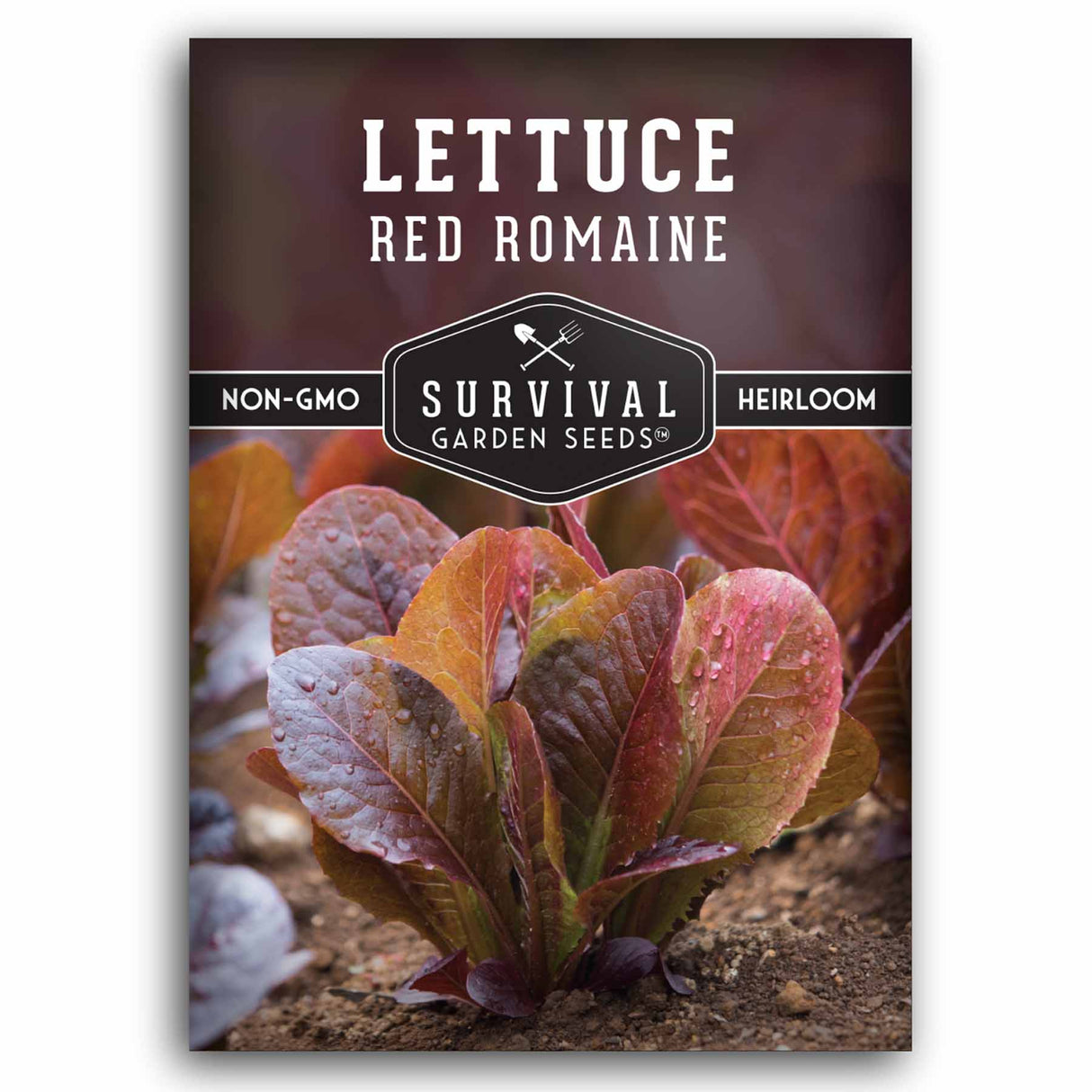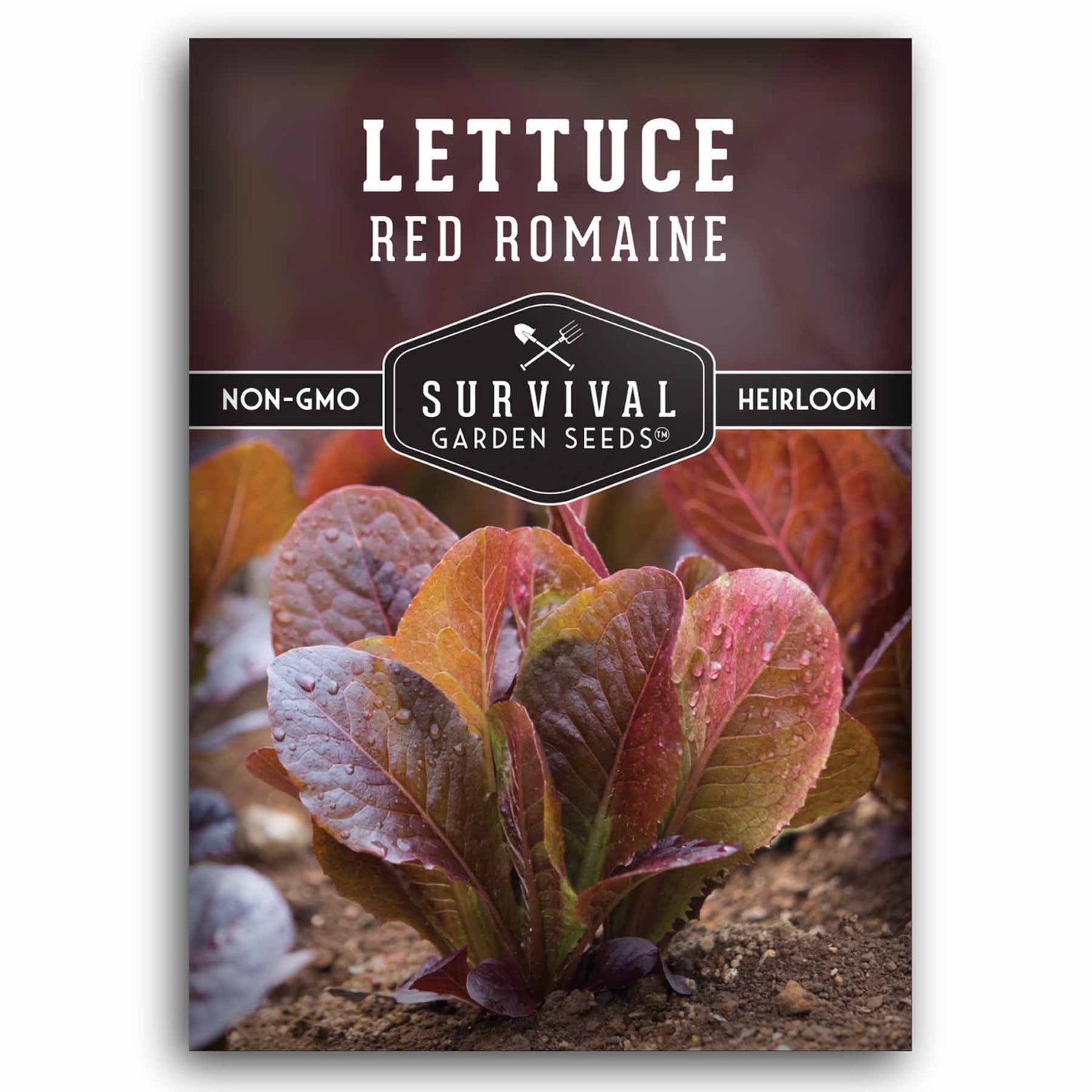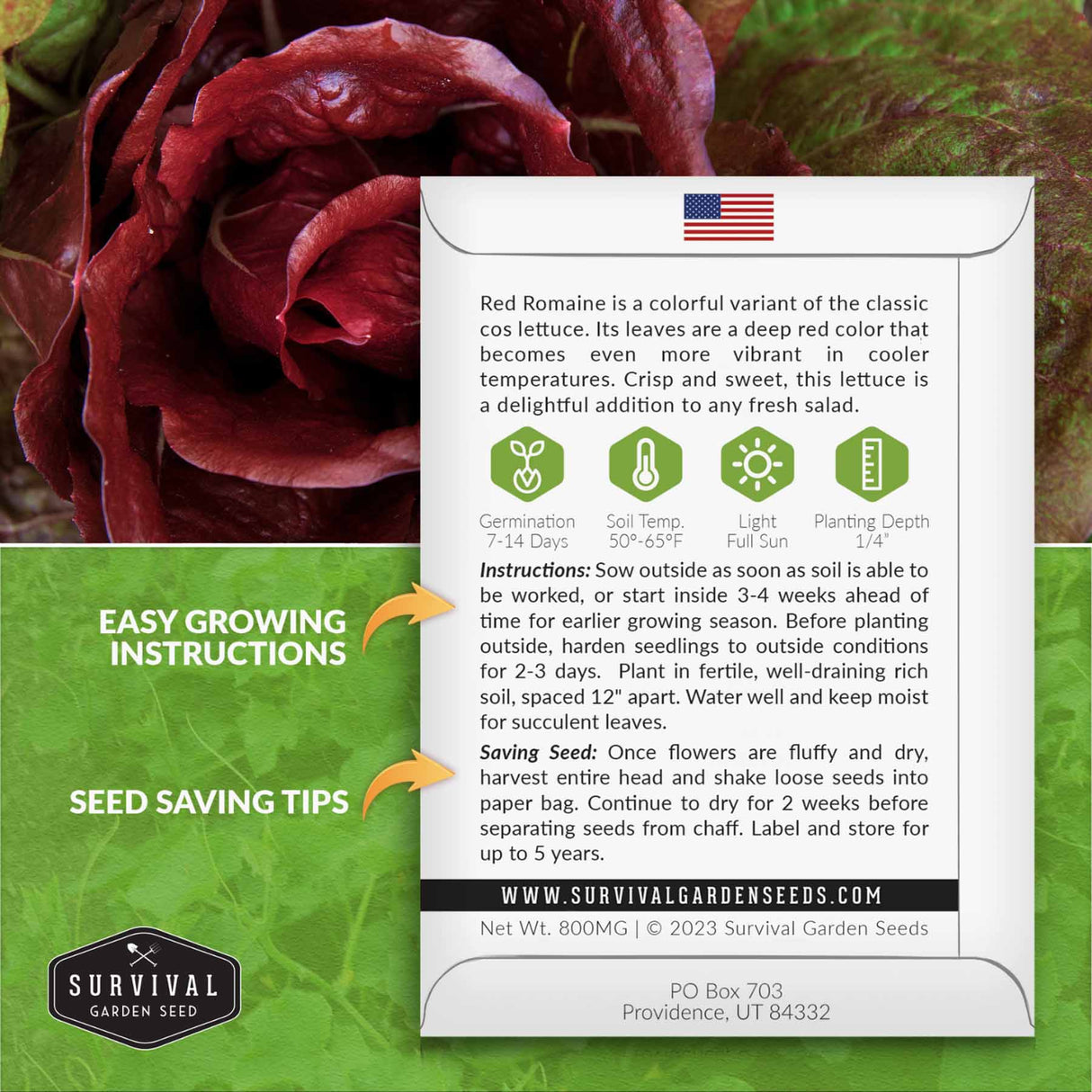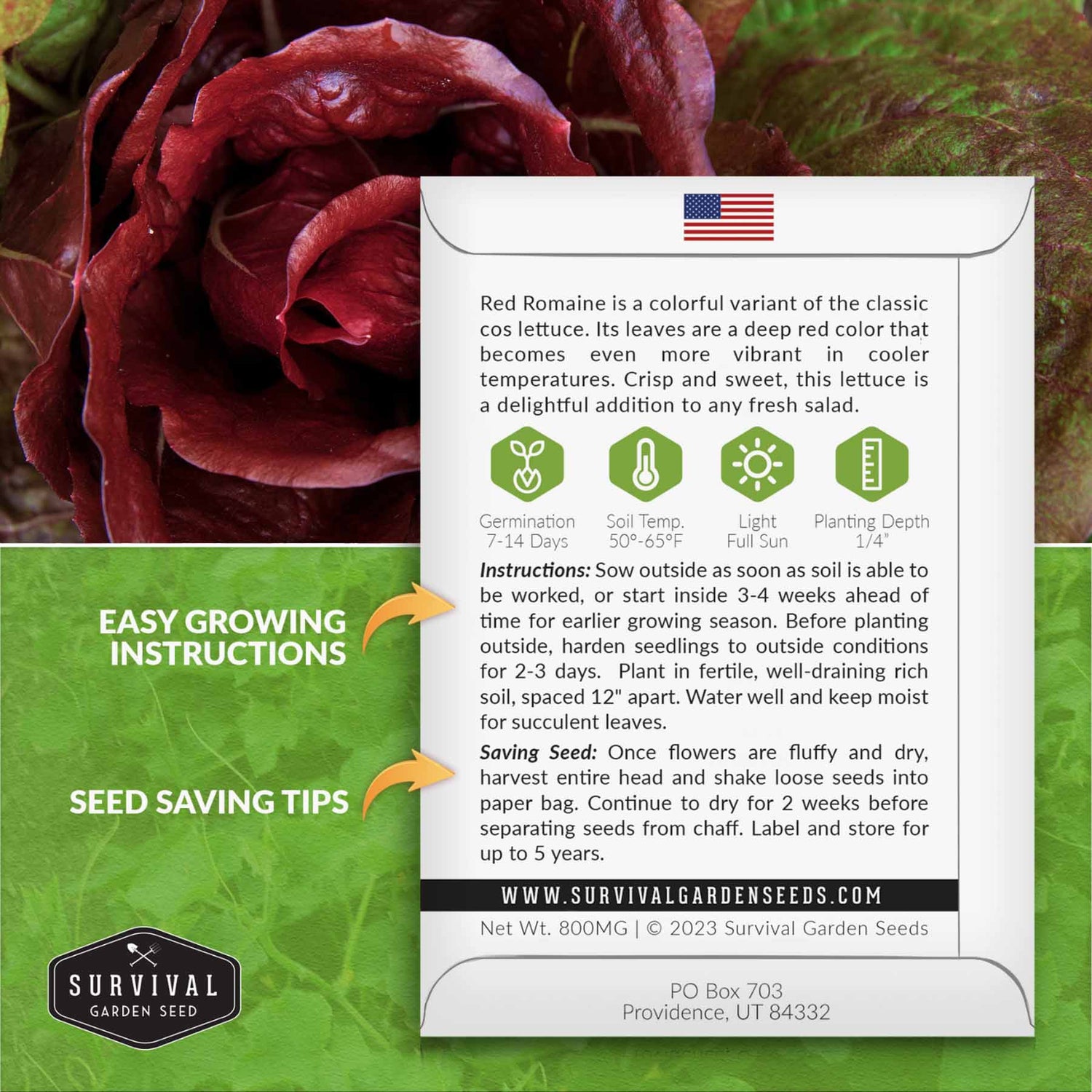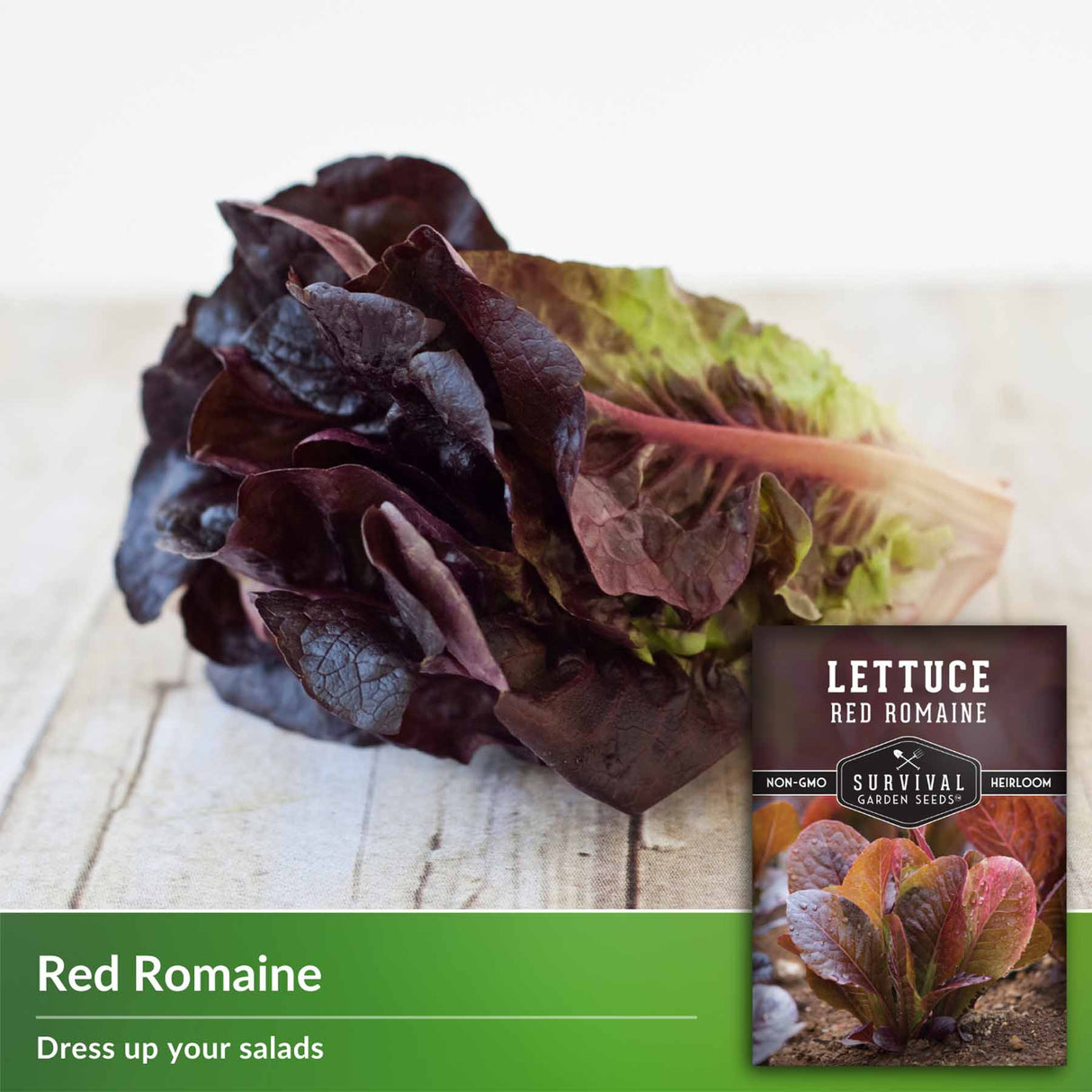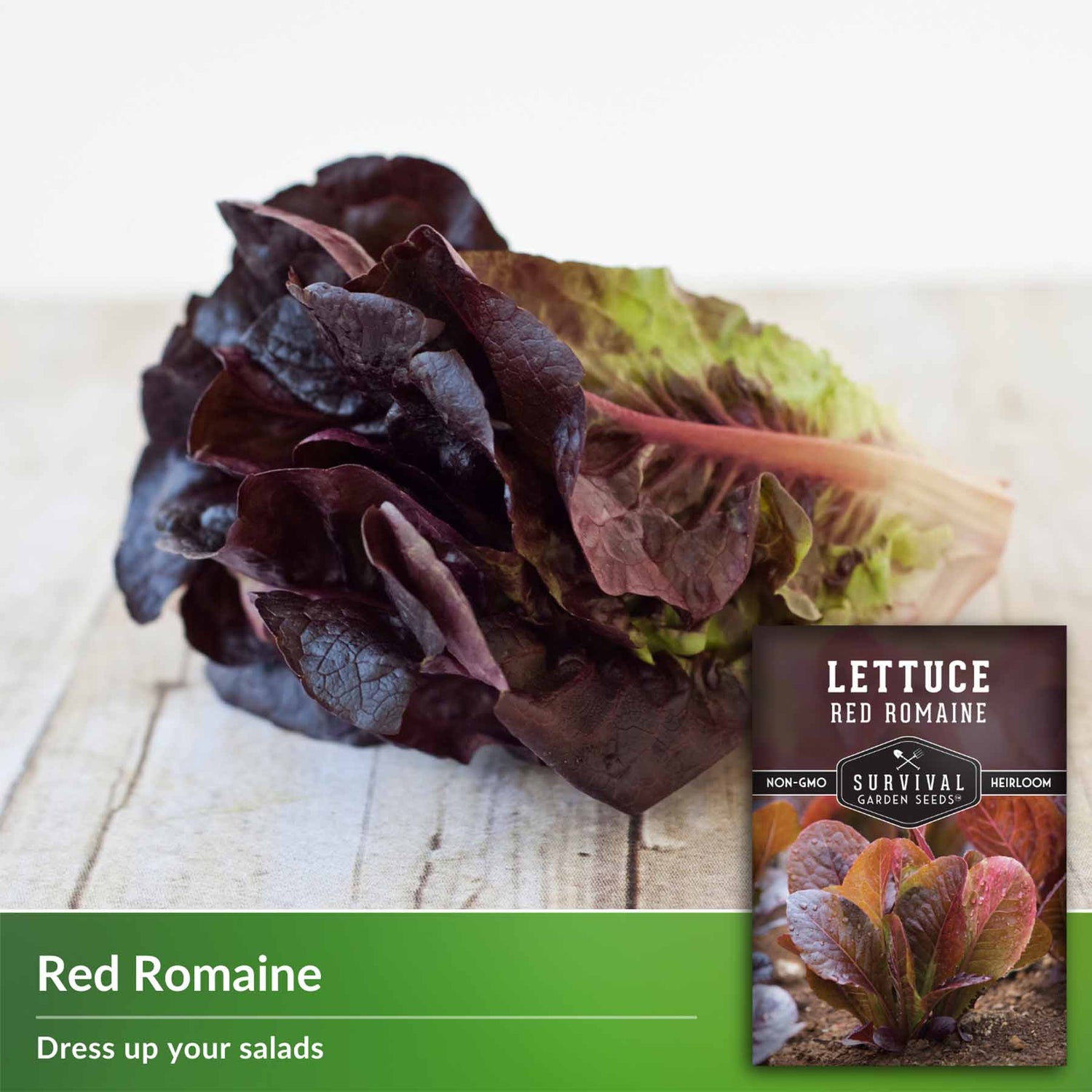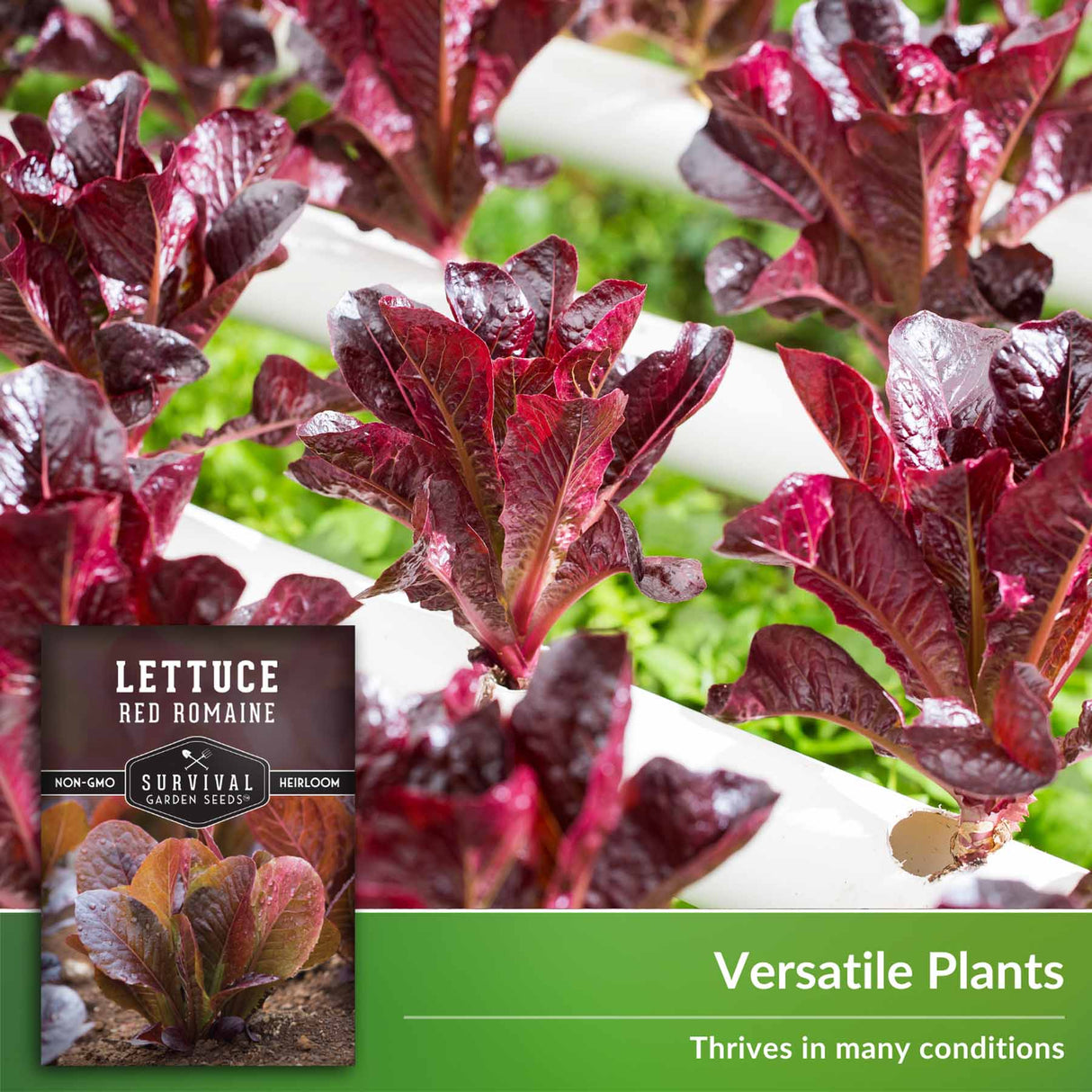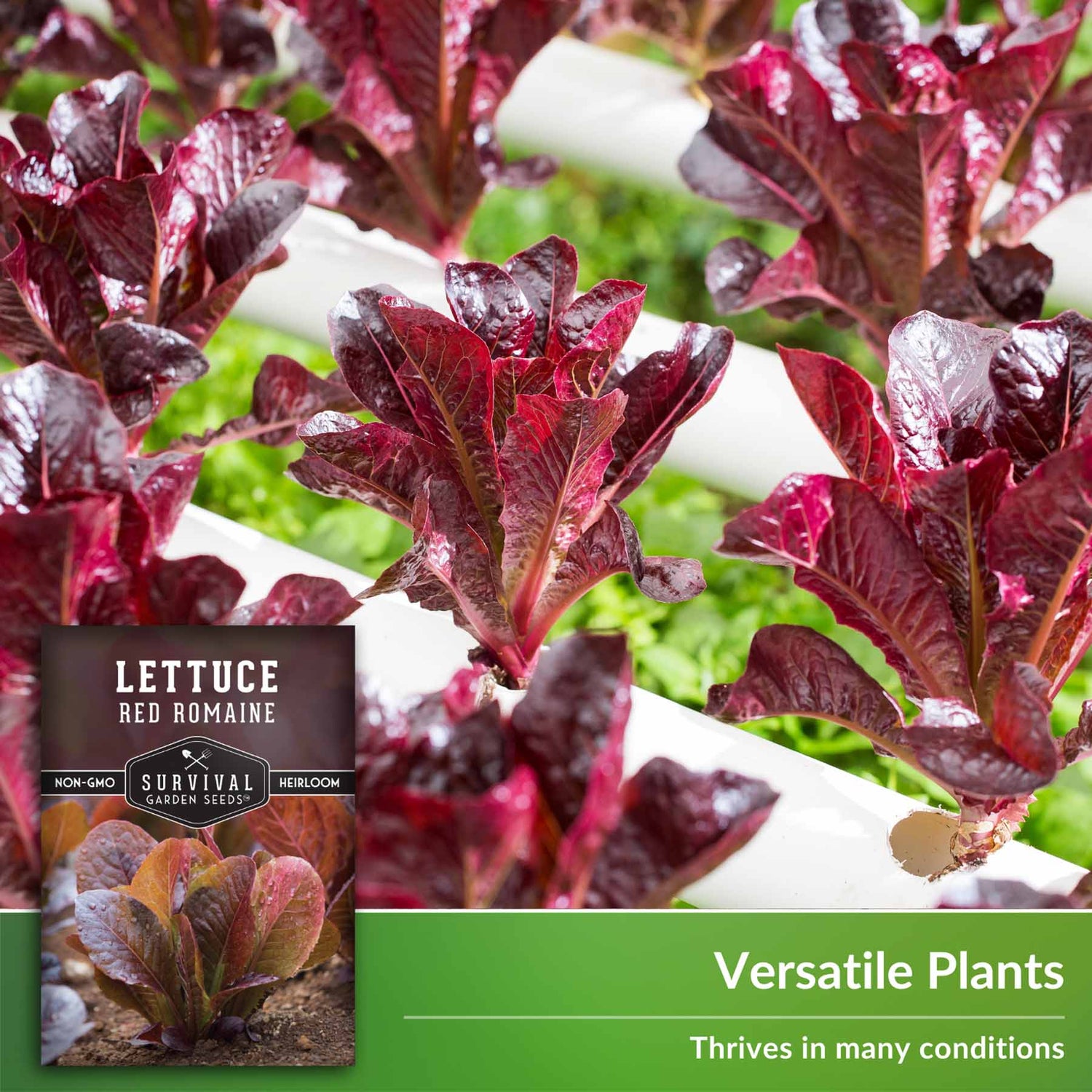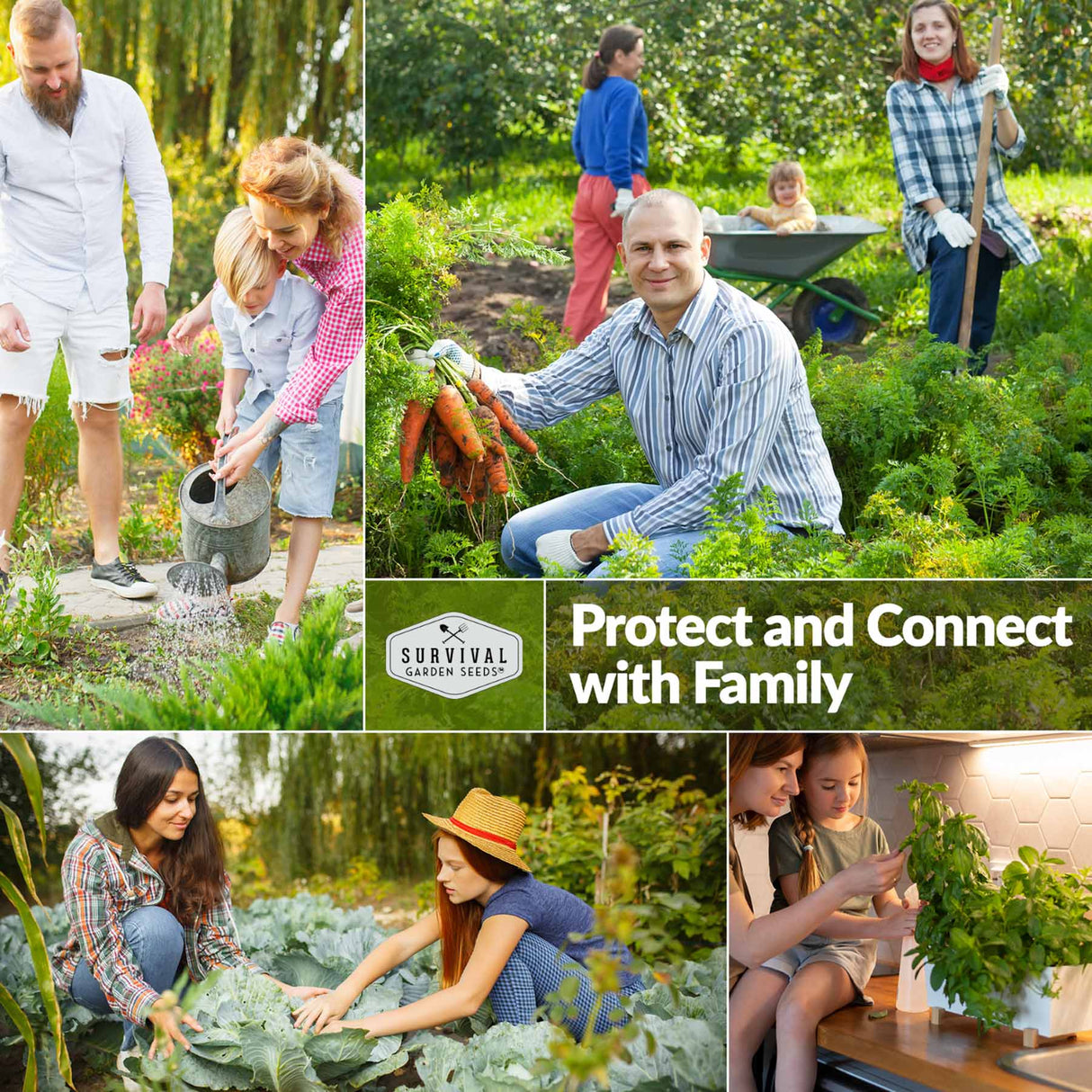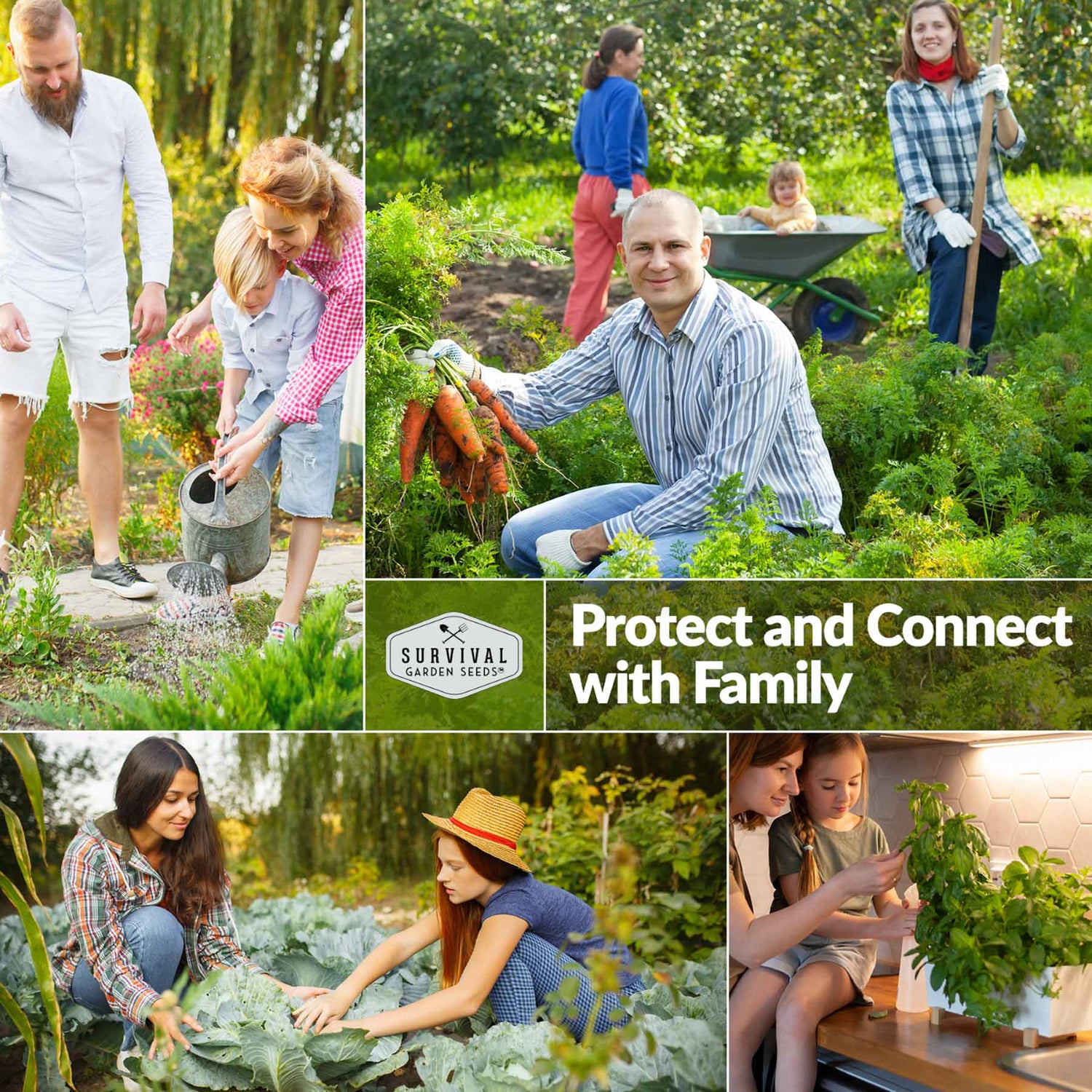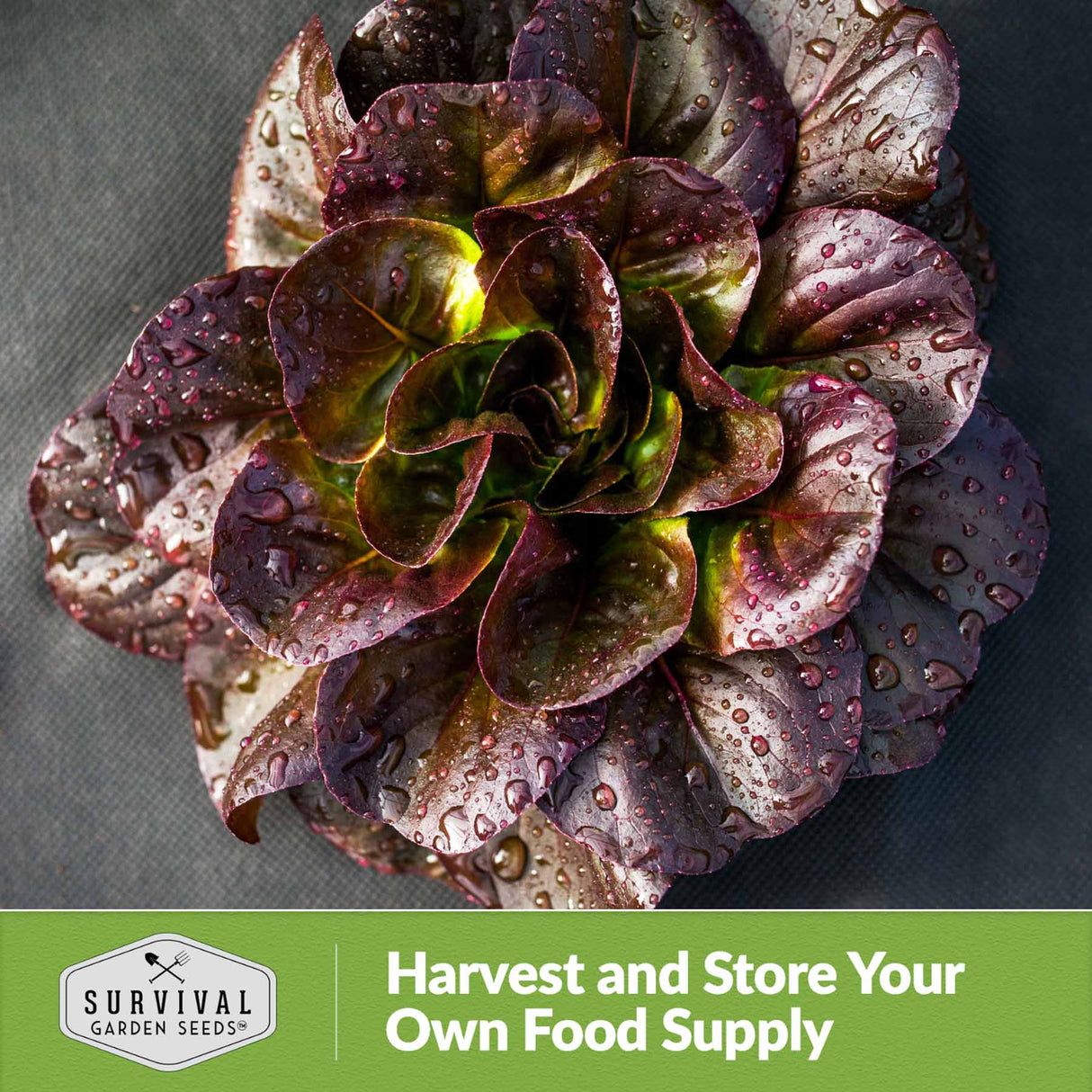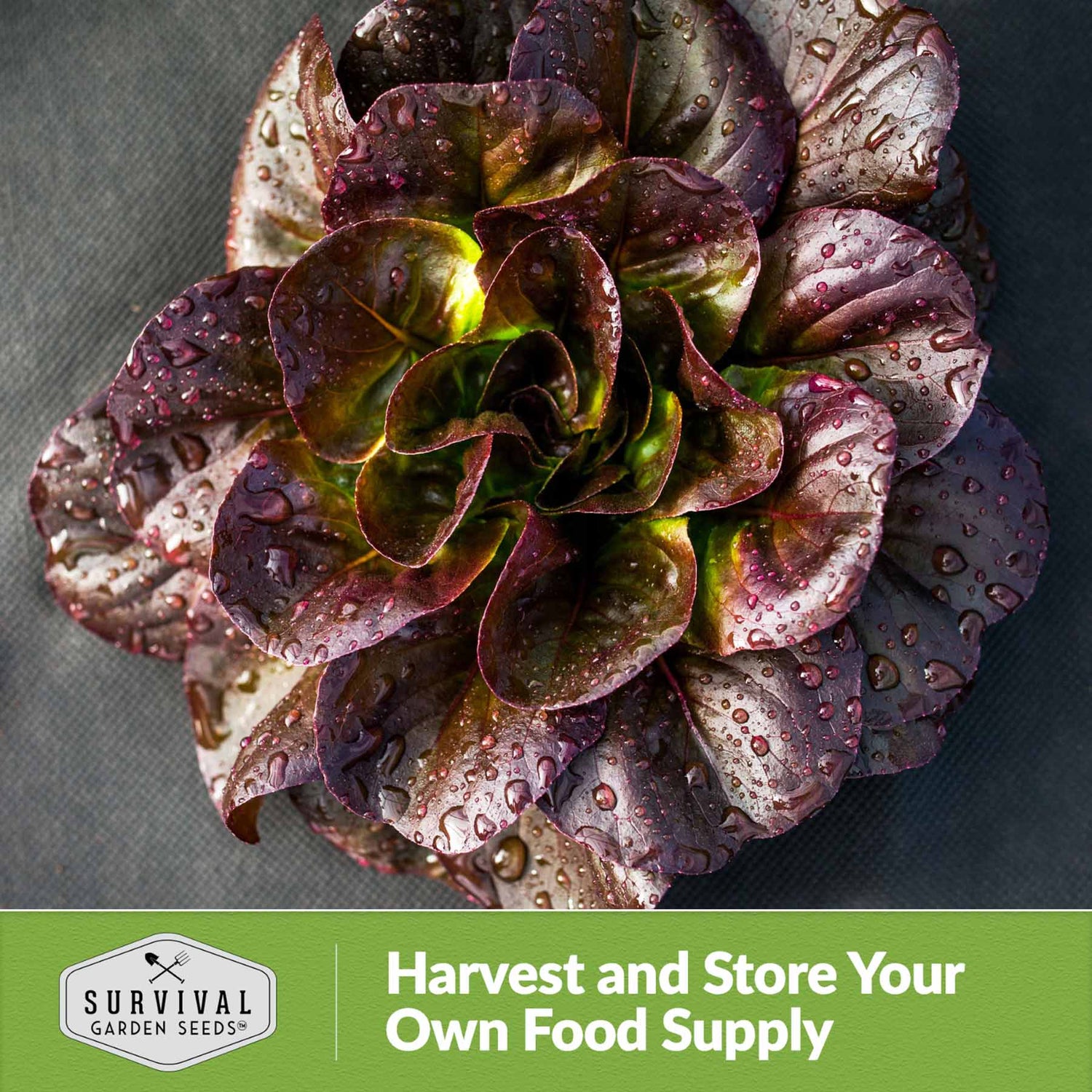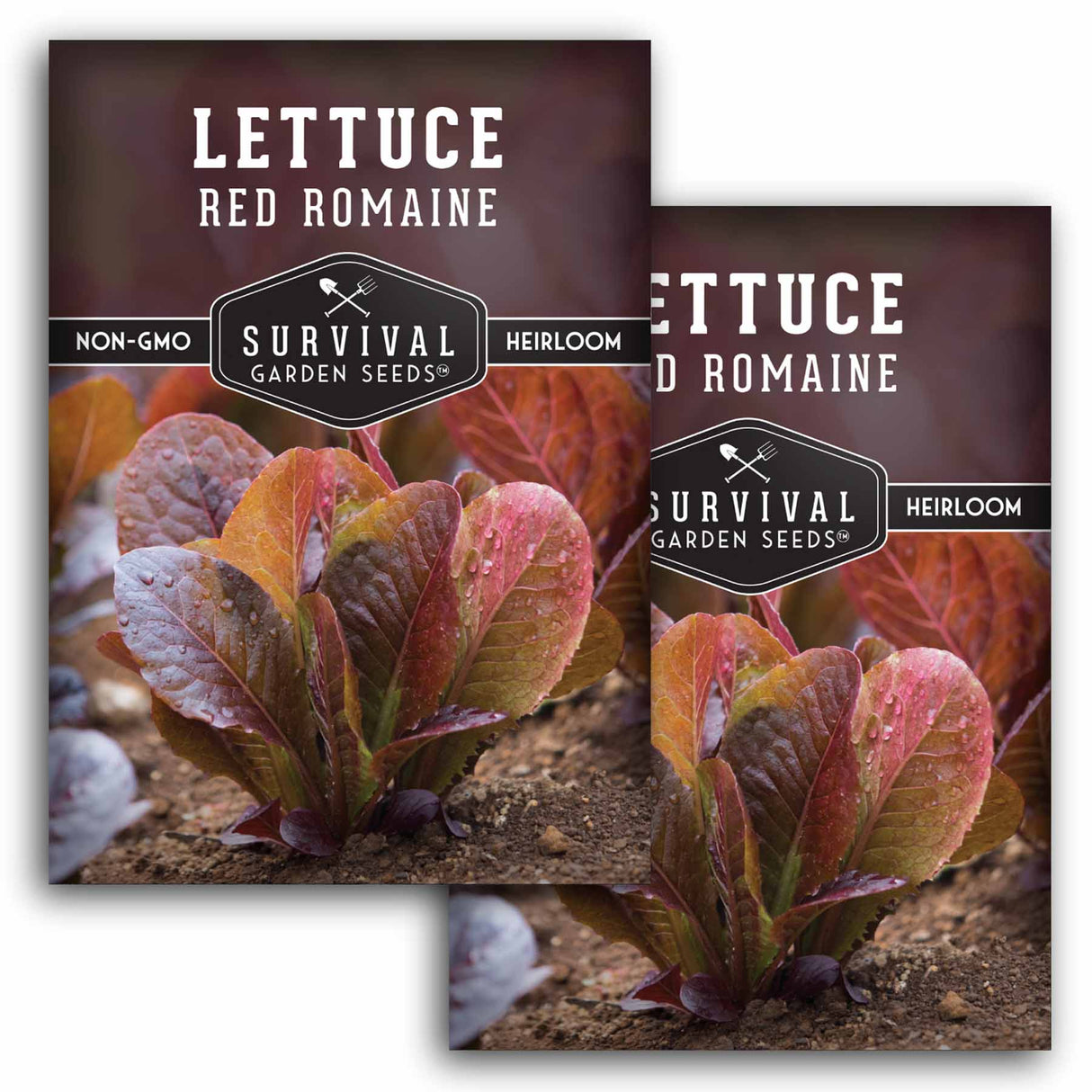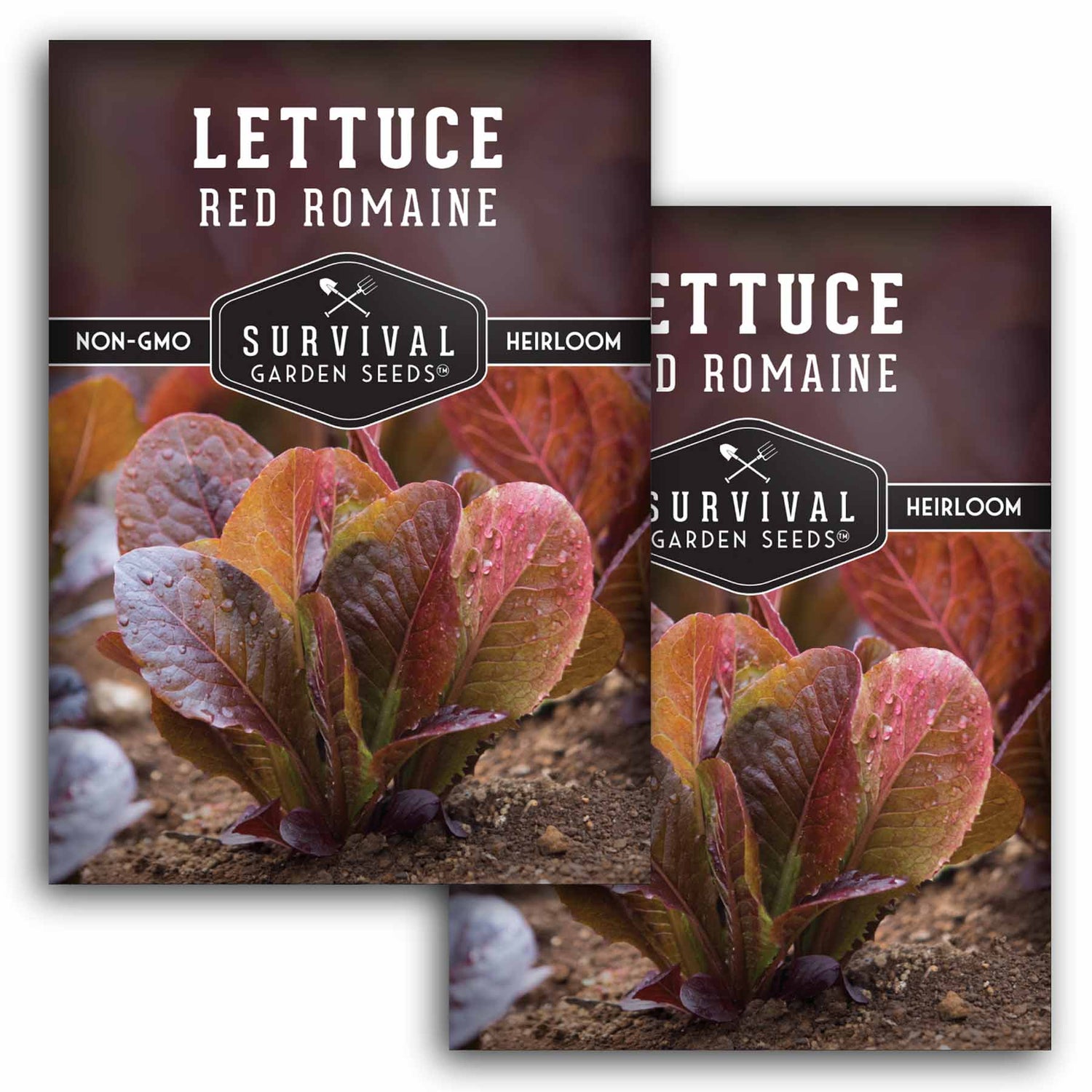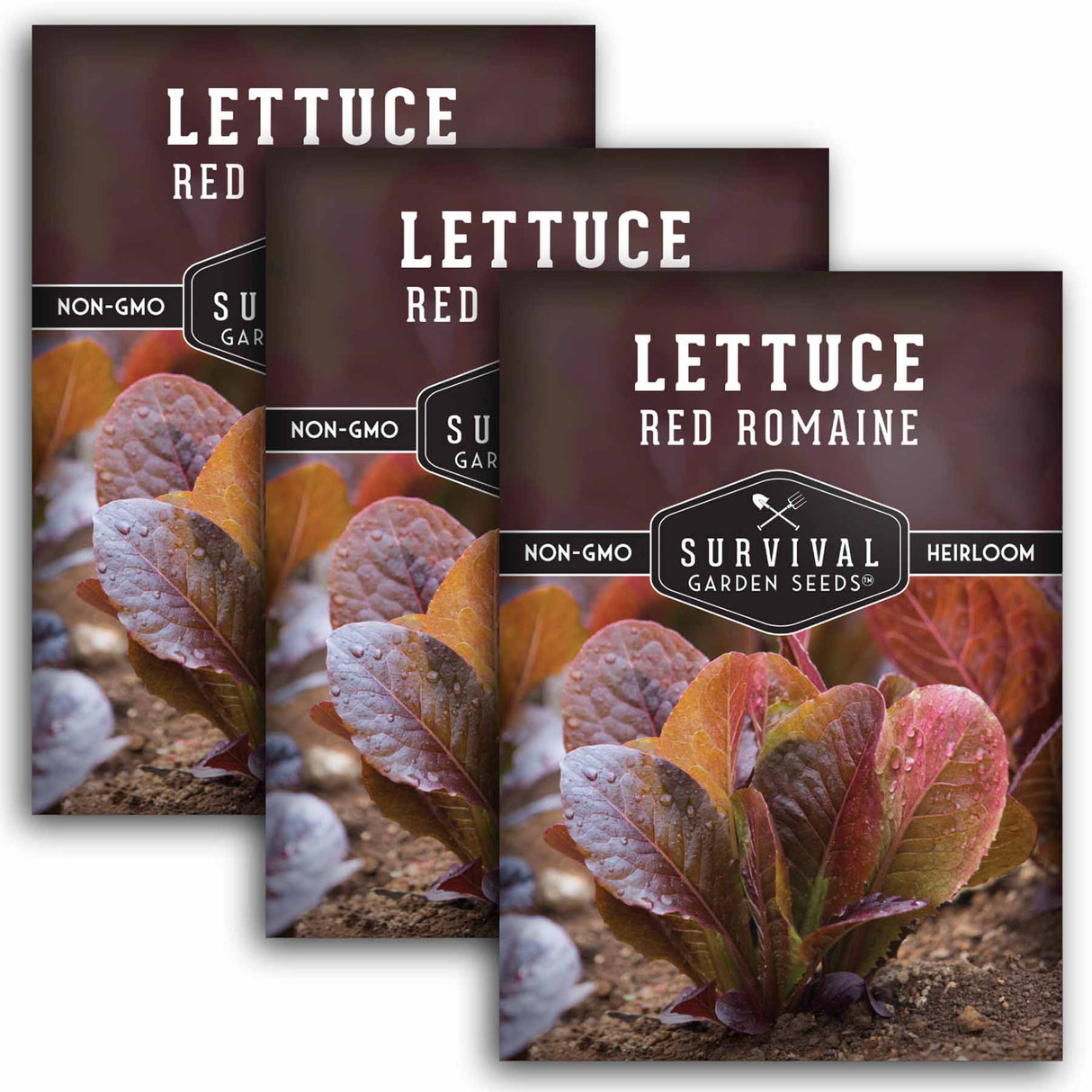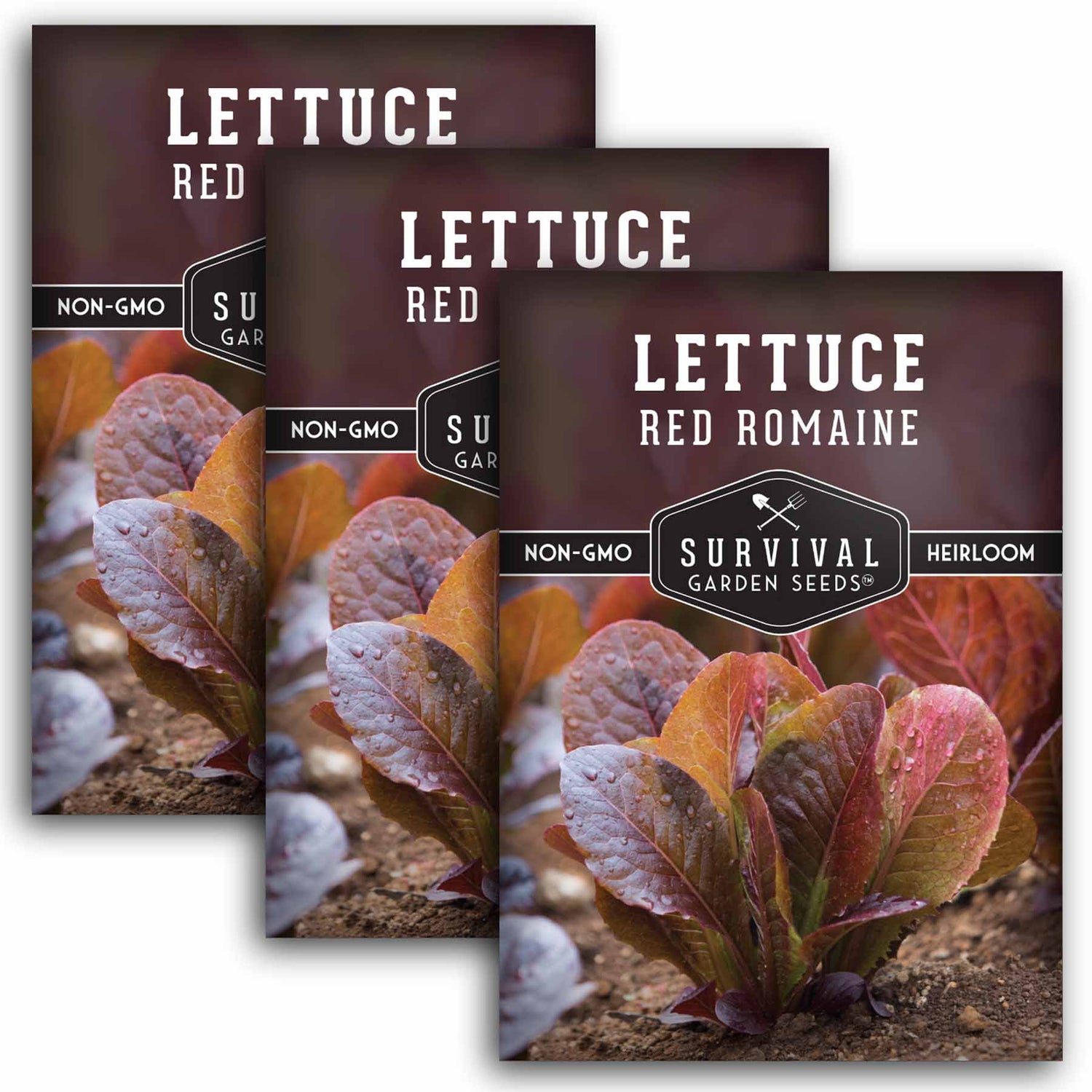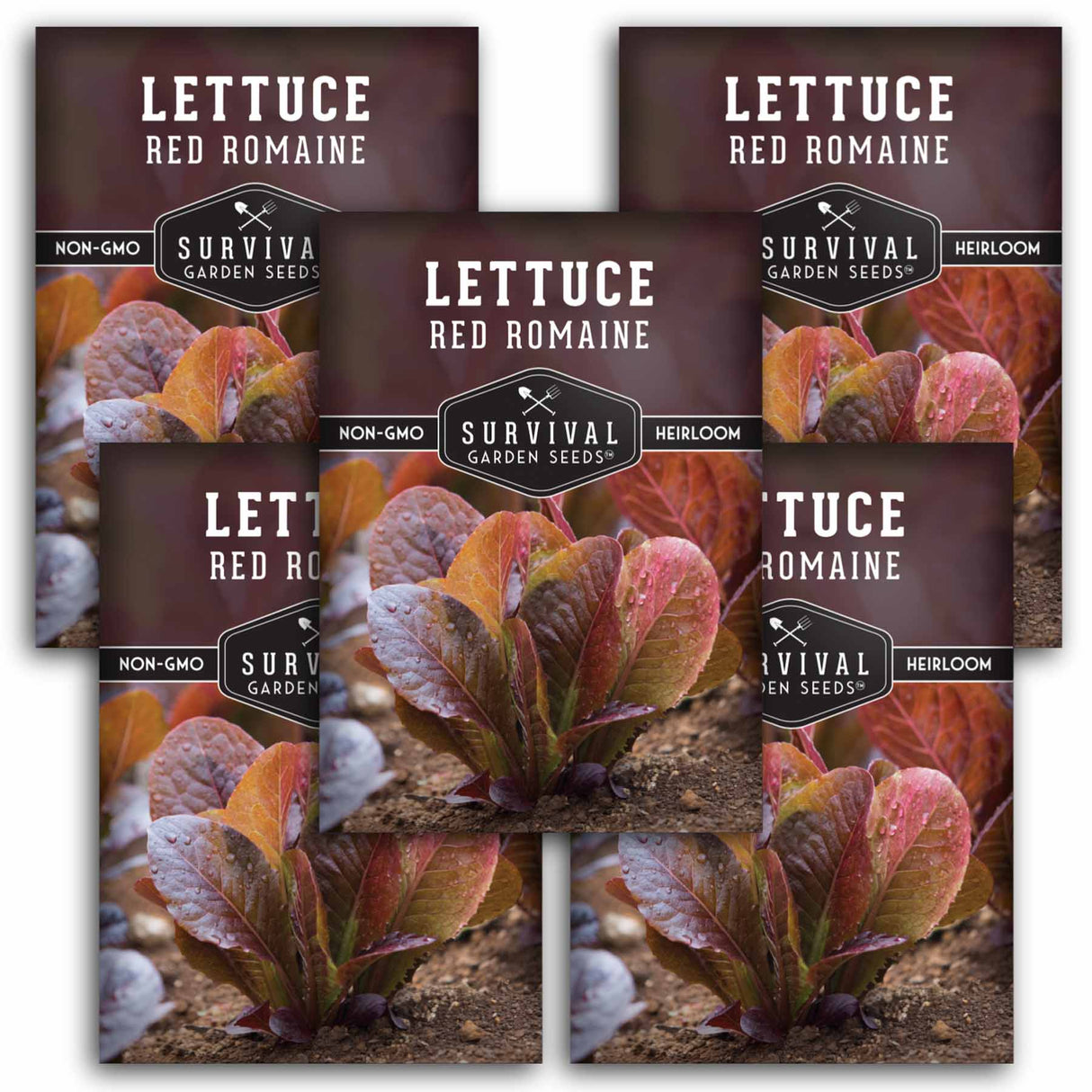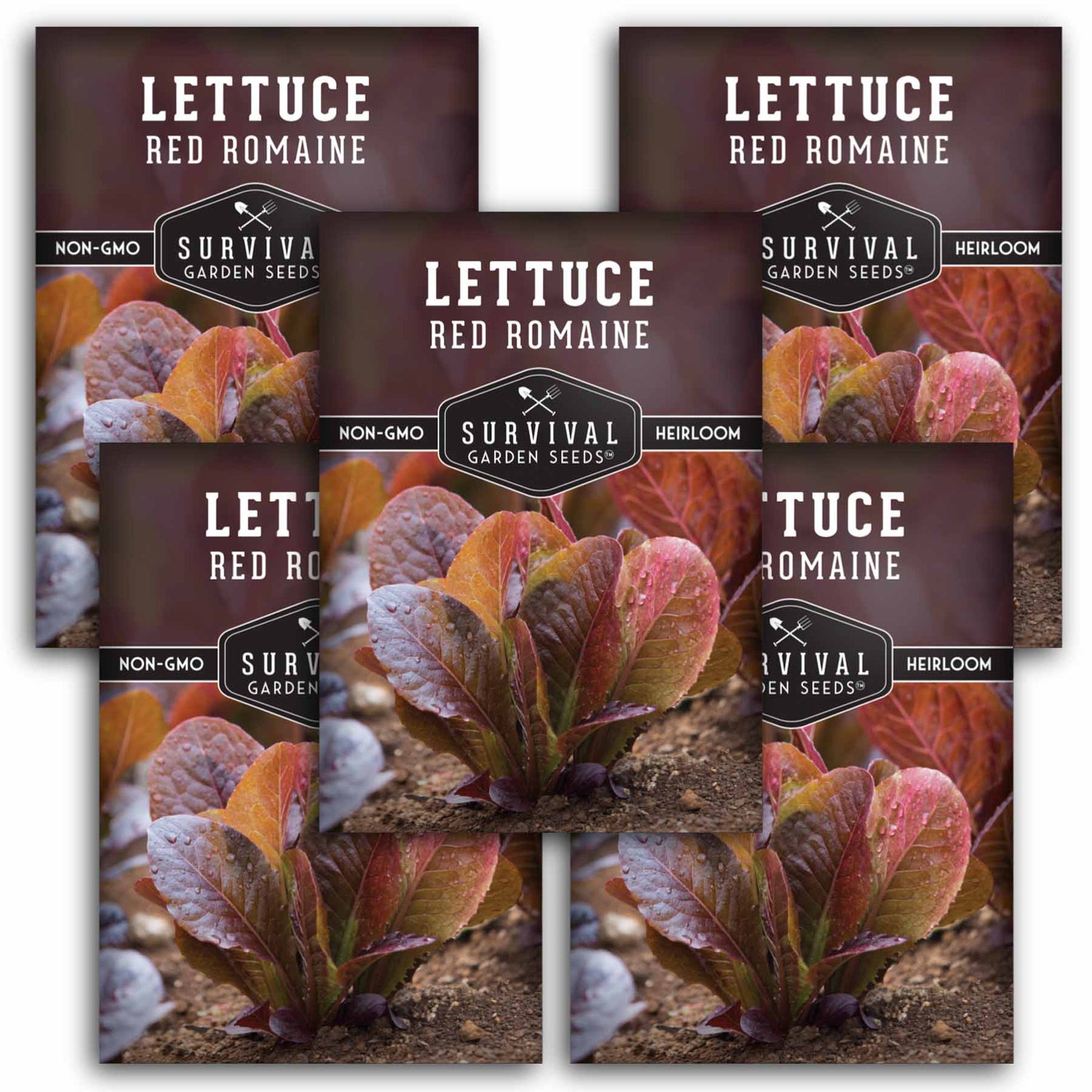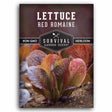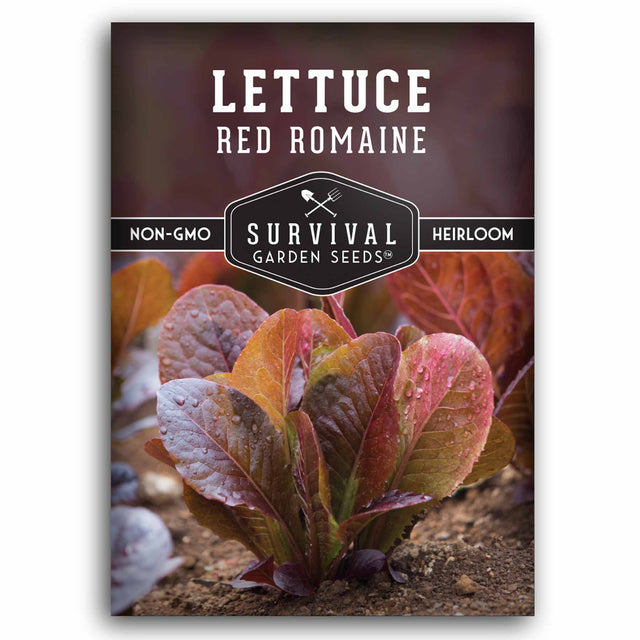Red Romaine Lettuce Seeds – Heirloom Cos Variety with Crisp, Sweet Burgundy Leaves
Heirloom - Non-GMO - Reliable Germination
Red Romaine Lettuce Seeds – Heirloom Cos Variety with Crisp, Sweet Burgundy Leaves - 1 Packet is backordered and will ship as soon as it is back in stock.
Bring color, flavor, and nutrition to your garden with Red Romaine Lettuce Seeds (Lactuca sativa). This heirloom Cos-type lettuce forms upright heads of sturdy, crisp leaves with a distinctive burgundy-red hue that fades to pale green or yellow at the heart. The contrast of colors and flavors—sweet with a hint of mild bitterness—makes Red Romaine an outstanding choice for both salad mixes and standalone dishes.
Known for its hardy growth and adaptability, Red Romaine performs beautifully in diverse conditions, from cool spring gardens to controlled indoor and hydroponic systems. It thrives in full sun to partial shade, producing dense, upright heads that are as decorative as they are delicious.
Vibrant, Hardy, and Flavorful:
- Striking burgundy-red outer leaves with pale inner hearts.
- Crisp texture and balanced sweet flavor.
- Thrives in gardens, raised beds, containers, and hydroponic setups.
- Grows reliably in a range of climates and light conditions.
Why Gardeners Love Red Romaine Lettuce:
- Adds vibrant color and crunch to salads and wraps.
- Excellent for hydroponics and small-space growing.
- Heat-tolerant and dependable across growing zones.
- Nutrient-rich heirloom variety with visual and culinary appeal.
How to Grow:
- Sow seeds directly in early spring or late summer for cool-season harvests.
- Provide full sun or partial shade, keeping soil evenly moist.
- Thin seedlings to 10–12 inches apart for strong head formation.
- For hydroponic setups, maintain consistent nutrient and light conditions for best leaf color.
Harvest & Use:
Harvest outer leaves for ongoing growth or cut full heads when mature. The crisp, sweet leaves are ideal for Caesar salads, sandwiches, and wraps, adding both texture and color to your plate.
Net Wt. 800MG
Heirloom Vegetable Seeds
All of our seeds are open-pollinated, non-GMO, heirloom varieties with tested germination rates
Specifications
Specifications
-
Botanical Name
-
Planting Zones
-
Light
-
Soil Temp for Germination
-
Germination Time
-
Planting Depth
-
Plant Size
-
Days to Harvest
-
Growing Instructions
-
Seed Saving Instructions
-
Seed Count (approximate)
Payment & Security
Your payment information is processed securely. We do not store credit card details nor have access to your credit card information.
Why Choose Survival Garden Seeds
At Survival Garden Seeds, we believe in preparing today for tomorrow’s peace of mind. That’s why we offer only heirloom, non-GMO, and untreated seeds you can trust to nourish your family and support a sustainable lifestyle. As a family-owned American company, we’re committed to providing seeds that grow strong and true—helping you cultivate health, resilience, and beauty in your garden.
Frequently Asked Questions
Are your seeds heirloom and open-pollinated?
Are your seeds heirloom and open-pollinated?
Yes. All of our seeds are heirloom, open-pollinated varieties, which means they can produce seeds that grow true to type and are suitable for seed saving.
You can learn more about open-pollinated, heirloom, and non-GMO seeds in our Survival Garden Training blog.
Are your seeds non-GMO?
Are your seeds non-GMO?
Yes. All Survival Garden Seeds are 100% non-GMO. Our seeds are open-pollinated heirloom varieties and are never genetically modified.
Are your seeds treated with chemicals?
Are your seeds treated with chemicals?
No. Our seeds are completely untreated and free from chemical coatings, fungicides, or synthetic treatments.
How do I know my seeds are fresh?
How do I know my seeds are fresh?
Every seed packet includes a packed-for date, and we germination-test each seed lot before packaging to ensure high viability.
What is the shelf life of your seeds?
What is the shelf life of your seeds?
Most seeds remain viable for 3 to 5 years or longer when stored properly in a cool, dry place away from light and moisture.
In what USDA hardiness zones can I grow your seeds?
In what USDA hardiness zones can I grow your seeds?
Our varieties are selected to grow successfully across USDA Hardiness Zones 3 through 10. Each packet includes variety-specific planting guidance and germination tips.

